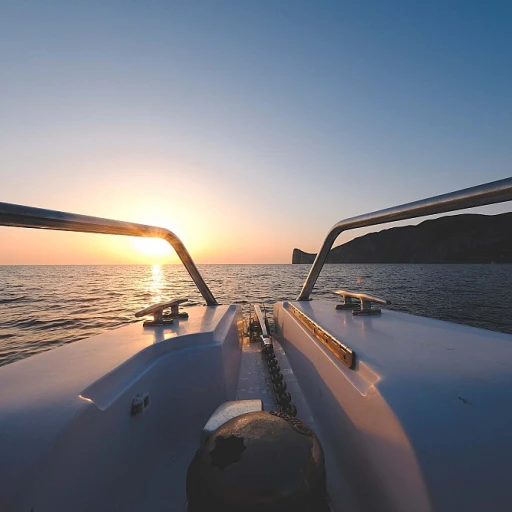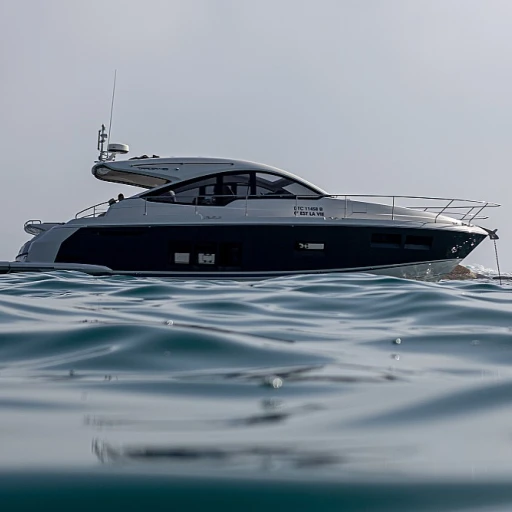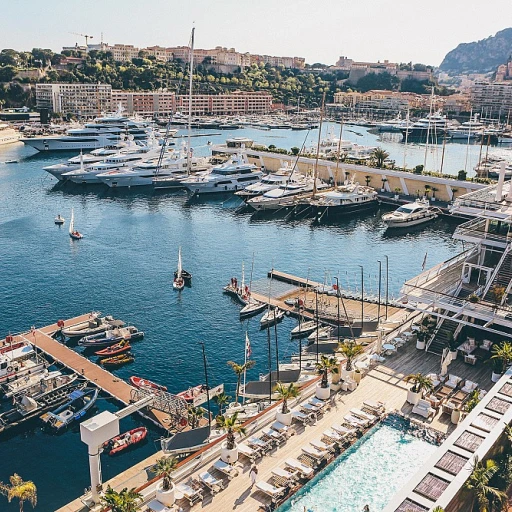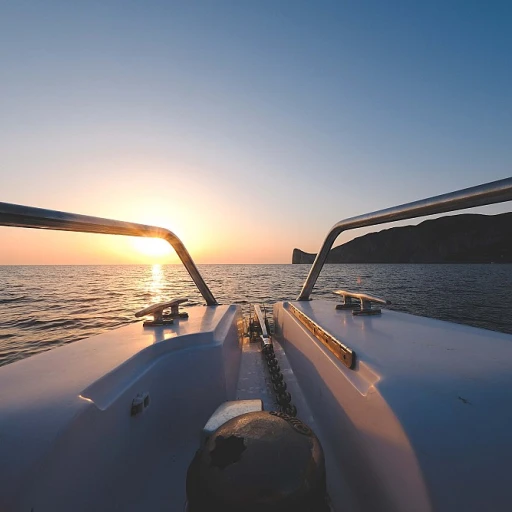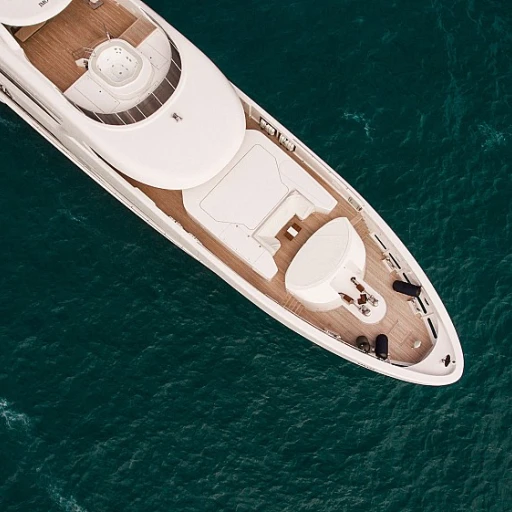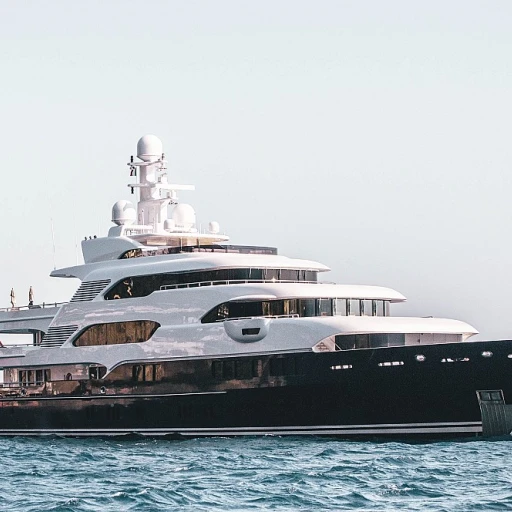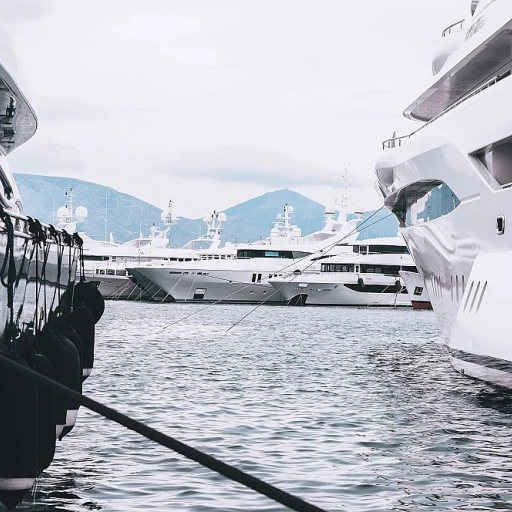Understanding the Basics of Yacht Crewing
Understanding Yacht Crewing Fundamentals
When considering the operation of a yacht, understanding the essential elements of yacht crewing is crucial. Whether you own a leisure boat or a larger superyacht, assembling the right team makes a significant difference not only in navigation but in overall yachting experience. Yacht sizes vary, and each yacht size imposes different manning requirements. For larger yachts, the need crew becomes more complex and includes specialized positions. From the captain at the helm to the chef in the galley, every role is interlinked, ensuring the vessel operates smoothly and efficiently. Various factors determine the necessity for specific crew members on board, such as the purpose of the yacht, be it private cruising or charter. The yachting industry offers different career paths to pursue within a yacht crew. Aspiring crew members should be aware of several key elements such as the relevant training, necessary experience, and specific medical certificates required for specific positions. The deck crew, for example, plays a vital role in maintaining the vessel's exterior, while the chief stewardess is significant for maintaining the interior service quality. Furthermore, safe manning regulations must be adhered to, helping ensure that the yacht remains a safe environment for both crew and passengers. As the industry continues to evolve, the link between economic impact and job creation through yachts cannot be overlooked. For an in-depth look, you may visit the article on economic impact and job creation. In conclusion, comprehending the basics of crewing is indispensable for any yacht owner seeking a smooth sailing journey. The following sections will delve deeper into the individual roles and their contributions to the seamless operation of a luxurious vessel.The Role of the Captain
The Essential Role and Responsibilities of a Yacht's Captain
A yacht's captain holds a vital position, being more than just the individual steering the ship. As the chief decision-maker on board, they bear significant responsibility for both navigating waterways and ensuring the safety and wellbeing of the whole yacht crew. Typically, a captain's duties cover a wide range from technical oversight to leadership roles, demanding a comprehensive set of skills and substantial experience. The process of becoming a captain typically requires extensive training and hands-on experience within the yachting industry. Candidates striving for this position must complete courses and achieve certifications relevant to their career path, such as a medical certificate and various safe manning jurisdictions aligned with the yacht's size. Captains must also possess a deep understanding of maritime laws and international regulations that govern larger yachts. A yacht captain's responsibilities involve overseeing every facet of operations on board. This includes managing the crew members and ensuring the yacht adheres to its manning requirements. They coordinate with the yacht owner or charter guests, aiming to provide a flawless yachting experience while meeting any unique needs or requests. Additionally, effective leadership skills are paramount since captains are also responsible for the crew's morale and wellbeing. Ensuring proper communication among the crew and maintaining professionalism is critical in fostering a positive work environment that thrives on efficiency and top-notch service. In larger yachts, the captain often works closely with the chief engineer and other officers, like the chief stewardess and head chef, to coordinate the efforts while on water. The captain ensures the superyacht is run smoothly and efficiently, collaborating with each department to elevate the standards of service and safety. For those considering this path, career advice often highlights the importance of perseverance and continuous development. Aspiring captains need to gain experience in various roles such as deck crew and deck officer positions, gradually building skills and expertise needed for assuming command of master yachts. From safe navigation to optimizing luxury service as part of a full yacht charter, the captain's role cannot be underestimated. A proficient captain not only leads the crew but is instrumental in providing unforgettable experiences and maintaining the yacht's esteemed reputation. For more insights into this critical role, explore the allure of the Grand Banks 32 and the multifaceted nature of private yachting.Deckhands and Their Duties
Understanding the Role and Responsibilities of Your Deck Crew
In the yacht crewing world, the deckhands are vital, versatile members of the yacht crew. These workers perform myriad tasks that contribute significantly to the smooth operation and maintenance of any boat, whether it's a modest yacht or a grand superyacht. Ensuring the vessel is in pristine condition, deckhands work under the guidance of the chief officer, reporting directly to the captain.
One of the primary responsibilities of the deck crew involves maintaining the exterior of the yacht, which includes cleaning, polishing, and sometimes even painting. Their duties don't end there; they assist in navigation, docking, and often have a hand in operating tenders and other equipment on board. For larger yachts with more complex manning requirements, deckhands are essential for both safety protocols and routine inspections.
The yachting industry requires that crew members meet specific qualifications and training. For deckhands, this often means indulging in rigorous training sessions to attain a deckhands' certification, and acquiring a valid medical certificate is obligatory. Continuous career advice and hands-on experience are also beneficial for those aspiring to advance to positions like bosun or officer.
Skillful yacht crew, including deckhands, not only support the captain and chief engineer but also enhance the overall yachting experience. Their role is crucial whether you're planning a yacht charter or maintaining your own vessel in top condition. Deckhands play a key role in offering service beyond the basics, contributing to a unique and luxurious yacht experience.
For yacht owners keen on exploring accessories that elevate their boating adventures, consider enhancing your yacht experience with unique boat accessories, a perfect complement to having a reliable and seasoned deck crew on board. Both factors combined ensure a rewarding and seamless yachting journey.
The Importance of a Skilled Chef
The Indispensable Skill of Culinary Excellence on Board
In the intricate tapestry of operating a yacht, the chef emerges as a pivotal element of the crew. A skilled chef does not just prepare meals; they are integral for curating an exceptional onboard experience. Whether you own a smaller boat or a superyacht, the galley often serves as the heart of the vessel, where culinary mastery thrives. When you consider the range of duties that fall under a chef's remit, it's clear that their role demands a high degree of experience and training. It's not just about crafting exquisite meals from a variety of cuisines. Good chefs are also adept at provisioning, managing dietary restrictions, and ensuring minimal waste. They maintain rigorous hygiene standards, crucial in a marine environment, and orchestrate the timing of meals to harmonize with the yacht’s schedule. Moreover, a yacht chef collaborates closely with the captain and other crew members to ensure that guest expectations are consistently met or exceeded. This collaboration is especially important on larger yachts, where the chef might function alongside a sous chef and additional galley staff. In these scenarios, the head chef coordinates efforts, simulating a well-oiled machine, to deliver impeccable service. Given the demanding nature of their job, chefs onboard yachts are expected to have certification and training beyond typical culinary arts. The yachting industry highly regards specific maritime training, emphasizing not only culinary prowess but safety and communication skills. Successful chefs understand the fluidity of their role, balancing between leading the galley and supporting the overall yacht crew dynamics. The ability of a chef to work seamlessly with the chief stewardess and other crew members also enhances the guests’ experience. A harmonious relationship between the galley and service staff ensures meals are presented beautifully and on time, contributing significantly to the ambiance and satisfaction of everyone on board. Ultimately, the importance of a skilled chef in yachting cannot be overstated. They are an indispensable part of the crew, bringing culinary talents and a comprehensive skill set that elevates life at sea.Stewards and Stewardesses: More Than Just Service
Exceptional Service Beyond a Smile
When considering the crew members who contribute to the smooth sailing of a yacht, the role of stewards and stewardesses is often underappreciated. Yet, these skilled professionals are essential, especially on larger yachts where their presence ensures that both service and comfort are maintained at the highest standards. Their duties extend far beyond simply providing a friendly smile.
Stewards and stewardesses are responsible for creating a luxurious and inviting atmosphere on board. Their work goes hand in hand with that of the chef, ensuring that meals are presented impeccably and in sync with the galley team's preparations. This involves coordinating with the chef and sometimes the sous chef to ensure the flow of meals and drinks aligns with the charter schedule or yacht owner's preferences.
In addition to serving meals and beverages, they are tasked with maintaining the interior with meticulous attention to detail. From making the beds to ensuring that salons and lounges remain pristine, their role is crucial in upholding the yacht’s aesthetics and functionality.
A chief stewardess often leads these service professionals and reports directly to the captain or yacht owner. Depending on the yacht size and specific needs, their team may include several stewardesses trained to uphold the standards of the maritime environment. Such training not only encompasses service skills but also includes familiarity with safety protocols and sometimes specific manning requirements.
Choosing the right stewards and stewardesses goes a long way in maintaining the ambience and service quality expected in the yachting industry. For those considering a career in this arena, career advice often emphasizes gaining experience on different types of vessels. With this background, they can adapt to the varying atmospheres found on both smaller and superyacht charters.
The importance of stewards and stewardesses cannot be overstated, as they provide a vital link between the yacht's operations and the enjoyment of its guests, contributing significantly to what makes a charter or private voyage unforgettable.
Choosing the Right Crew for Your Needs
Finding Your Ideal Yacht Crew
When it comes to assembling the perfect crew for your yacht, understanding the unique needs of your vessel and your personal expectations as a yacht owner is crucial. Larger yachts or superyachts often have specific manning requirements due to their size and complexity, necessitating a more comprehensive team. However, even smaller yachts benefit from a well-chosen crew to ensure smooth operation and luxurious service. Consider the following factors to help you choose the right crew members:- Yacht Size and Type: The requirements will vary significantly depending on whether you're manning a small boat or a larger yacht. Superyacht crew, for instance, may require additional skills and training compared to the deck crew of a smaller boat.
- Experience and Expertise: Look for crew members whose experience aligns with your specific needs. A captain with extensive yachting experience, or a head chef capable of running a galley with efficiency and creativity, can make a significant difference to your onboard experience.
- Roles and Responsibilities: Clearly define what each role entails aboard your yacht. From the chief engineer to the chief stewardess, each position should complement one another to create a seamless operation.
- Qualifications and Certifications: Ensure that all crew members possess the necessary qualifications and certifications, such as a medical certificate, which are often required to adhere to industry standards.
- Personal Chemistry: Yachting is as much about the journey as it is about the destination. Ensuring that the crew can work harmoniously together and with you, the yacht owner, enhances the overall experience.


